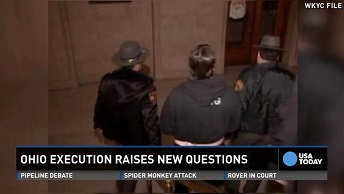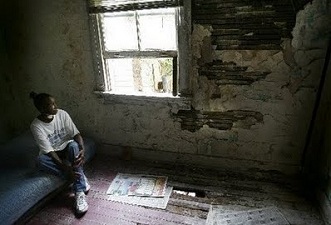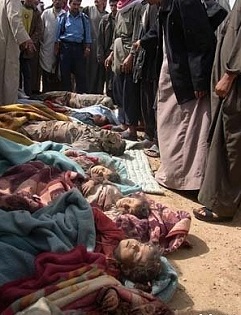Chris Floyd
Five years ago, I wrote several articles about a horrific massacre of Iraqi civilians in Ishaqi. Credible evidence and eyewitness testimony indicated that American soldiers, in the course of a raid, had executed unarmed civilians -- including several small children -- then called in an airstrike to destroy the house, and the evidence of these murders.
At the time, these articles were criticized by some for putting the "worst case" construction on the evidence. After all, in the "fog of war" -- that clapped-out rhetorical trope which has hidden a multitude of sins down through the years -- who could know what really happened? Yeah, some mistakes might or might not have been made -- crossfire, collateral damage, etc. -- but surely no one could believe that American soldiers would deliberately do such a thing. My take -- and that of this blog's co-founder, Rich Kastelein, who put together a devastating flash film on the incident -- was just the usual overblown, knee-jerk, anti-war hissy fit, etc.
But thanks to a recent WikiLeaks revelation, we now know that at least two other groups of knee-jerk, anti-war freaks were also pursuing the "worst-case" interpretation of the massacre: UN investigators, who delivered a detailed report on the evidence to the American occupation forces -- and the invaders themselves. It turns out that American authorities regarded the UN evidence very seriously; so seriously that they took immediate, decisive action .... to cover it all up.
Publicly, of course, the invaders had solemnly promised to investigate the "allegations" with all due speed and diligence; this promise was, of course, an outright lie -- as has been the case countless times with similar "allegations" in America's decade-long war on the world. The atrocity was never investigated by the Americans, who simply tossed aside not only the work of the UN investigators, but also the mountain of first-hand evidence gathered by the US-trained, pro-American Iraqi officials on the scene.
So here we are: we now know that the Americans themselves strongly suspected that the "allegations" were true, that U.S. soldiers had entered a house in an Iraqi village and executed five children under the age of five -- including a five-month old -- and four women, including a grandmother, and the children's father, a young man in this 20s. They had credible evidence for this, they took the evidence seriously -- and they bent all their efforts toward burying the case and protecting the perpetrators (and their commanders). They have sat on this evidence for five years, beyond the end of the Bush Regime and deep into the reign of the Nobel Peace Laureate.




























